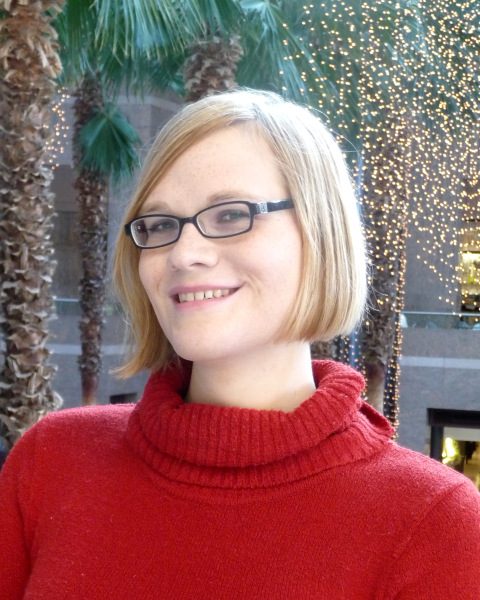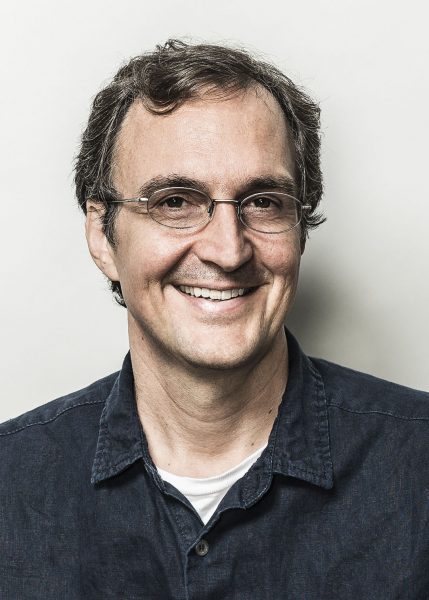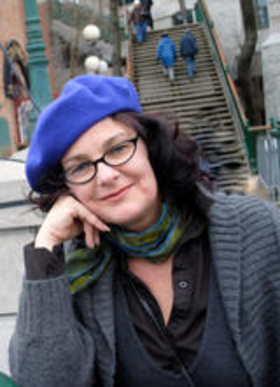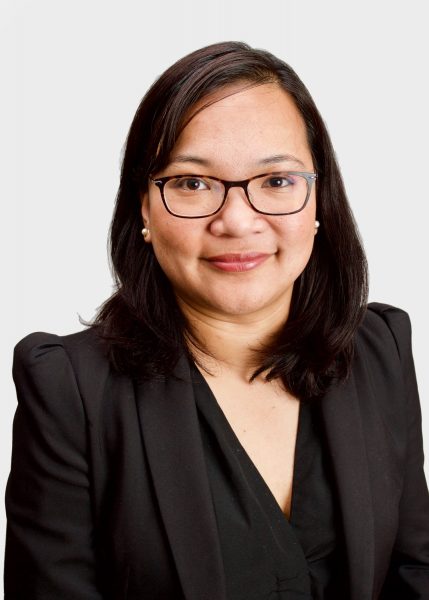TORONTO, May 3, 2018 ─ York University welcomes the appointment of four new Canada Research Chairs, who will study topics ranging from the impact of government policy on migrant workers to how to improve camera images used for scientific tasks.
The Government of Canada announced the CRC recipients today. Researchers at post-secondary institutions across Canada will receive $158.7 million in funding under the CRC program; for each Tier 1 appointment the university receives $200,000 annually for seven years, while for Tier 2 CRCs it will receive $100,000 annually for five years. The CRCs are also supported with $8.3 million in research infrastructure funding from the Canada Foundation for Innovation.
CRC appointments at York include professors Regina Rini, Michael Brown, Kate Tilleczek and Ethel Tungohan. Today’s announcement also included CRC renewals for Gordon Flett and John Tsotsos.
“The CRC program supports some of the most important and exciting research being done at York,” said Robert Haché, vice-president research & innovation. “We are particularly proud that the four CRCs announced today, and the successful renewals of two more, represent research across the university, from the Lassonde School of Engineering to the Faculty of Education, and the Faculty of Health to the Faculty of Liberal Arts & Professional Studies.”
The four CRCs announced today include:
 Regina Rini, Canada Research Chair in Philosophy of Moral and Social Cognition (Tier 2) Assistant Professor, Department of Philosophy, Faculty of Liberal Arts & Professional Studies − Rini’s research focuses on how people in democratic societies justify their social beliefs to one another. Her work analyzes research from the social sciences, especially cognitive science and sociology, to draw conclusions about how public debate currently works. She also investigates philosophical questions about what it means to improve public debate. How can we take deep moral and political difference seriously while remaining respectful in a diverse society? Rini's central answer is a connection between public discourse and personal moral agency. She argues that we cannot understand our individual moral and political decisions without also understanding how we relate to those of others.
Regina Rini, Canada Research Chair in Philosophy of Moral and Social Cognition (Tier 2) Assistant Professor, Department of Philosophy, Faculty of Liberal Arts & Professional Studies − Rini’s research focuses on how people in democratic societies justify their social beliefs to one another. Her work analyzes research from the social sciences, especially cognitive science and sociology, to draw conclusions about how public debate currently works. She also investigates philosophical questions about what it means to improve public debate. How can we take deep moral and political difference seriously while remaining respectful in a diverse society? Rini's central answer is a connection between public discourse and personal moral agency. She argues that we cannot understand our individual moral and political decisions without also understanding how we relate to those of others.
 Michael Brown, Canada Research Chair in Computer Vision (Tier 1)
Michael Brown, Canada Research Chair in Computer Vision (Tier 1)
Professor, Department of Electrical Engineering & Computer Science, Lassonde School of Engineering –
Brown’s research aims to improve the understanding of the physical world through camera images by: investigating image formation models that describe how incoming light (i.e., physical scene irradiance) is converted to camera sensor responses under different imaging scenarios; and designing novel in-camera imaging pipelines that produce image outputs suitable for both photographic and scientific tasks. His program is strongly aligned with York University’s $33.3 million Canada First Research Excellence Fund program, Vision: Science to Applications (VISTA), which focuses on research in biological and computational computer vision.
 Kate Tilleczek, Canada Research Chair in Young Lives, Education and Global Good (Tier 1)
Kate Tilleczek, Canada Research Chair in Young Lives, Education and Global Good (Tier 1)
Professor, Faculty of Education (commencing July 1) −
Tilleczek’s research examines how education can better assist more young people and provides unique national and international data on critical risk and protective situations encountered by contemporary youth. Her work documents how marginal youth are affected by shifting global and local contexts such as digital technology and mental health challenges. It unearths the positive and resilient aspects of young lives and provides longitudinal and cross-cultural comparisons in Canada and beyond. Her research is mobilized to the academy, communities, and decision makers who are in positions to better support youth. The Chair also builds new global youth partnerships, linking young people across countries and cultures to develop social innovations for the greatest challenges they face.
 Ethel Tungohan, Canada Research Chair in Canadian Migration Policy, Impacts and Activism (Tier 2)
Ethel Tungohan, Canada Research Chair in Canadian Migration Policy, Impacts and Activism (Tier 2)
Assistant Professor, Department of Politics, Faculty of Liberal Arts & Professional Studies −
Tungohan will undertake an analysis of discourses that have underpinned the Canadian government’s policies towards temporary foreign workers from 1973 until 2017 and the nature of these policies and their effects on different groups of temporary foreign workers. She will also examine the range of migrant workers’ social movement activities that have emerged as a response, in particular, to anti-migrant discourses and policies.
CRC renewals announced today include:
 John Tsotsos, Canada Research Chair in Computational Vision (Tier 1)
John Tsotsos, Canada Research Chair in Computational Vision (Tier 1)
Professor, Department of Electrical Engineering &Computer Science, Lassonde School of Engineering −
Tsotsos’ research focuses on two main goals: to further understanding of how vision can be the primary sense that guides human behavior, and to use this understanding to build active agents that purposely behave in real environments. Using human experimental studies and the full spectrum of computational methods, Tsotsos will extend his model of visual attention to support visual reasoning and task execution in dynamic environments. These require interactions with memory, control, sensor sub-systems, and joint attention for interactions with other agents. The research is relevant for applications to autonomous driving, companion robots for the elderly and robots in manufacturing.anti-migrant discourses and policies.
 Gordon Flett, Canada Research Chair in Personality and Health (Tier 1)
Gordon Flett, Canada Research Chair in Personality and Health (Tier 1)
Professor, Department of Psychology, Faculty of Health –
Flett’s past research on perfectionism and its consequences has established that the perfectionism construct is complex and multi-faceted and associated with numerous costs and consequences. His research will now further increase understanding of the vulnerability inherent in dysfunctional perfectionism. A series of investigations will evaluate a failure orientation theory and test unique conceptualizations of the cognitive and motivational aspects of perfectionism. Research will also elaborate the developmental roots of perfectionism in children and adolescents. Finally, his research will assess conceptual models linking perfectionism with health problems.
York University champions new ways of thinking that drive teaching and research excellence. Our students receive the education they need to create big ideas that make an impact on the world. Meaningful and sometimes unexpected careers result from cross-disciplinary programming, innovative course design and diverse experiential learning opportunities. York students and graduates push limits, achieve goals and find solutions to the world’s most pressing social challenges, empowered by a strong community that opens minds. York U is an internationally recognized research university – our 11 faculties and 25 research centres have partnerships with 200+ leading universities worldwide. Located in Toronto, York is the third largest university in Canada, with a strong community of 53,000 students, 7,000 faculty and administrative staff, and more than 300,000 alumni.
York U's fully bilingual Glendon Campus is home to Southern Ontario's Centre of Excellence for French Language and Bilingual Postsecondary Education.
Media contact:
Janice Walls, York University Media Relations, 416 736 5543 / wallsj@yorku.ca
